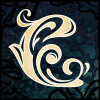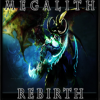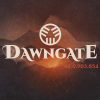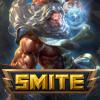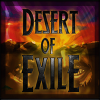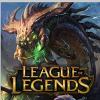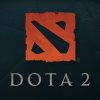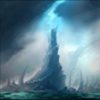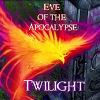A recreation of Paragon, announced two months before the official assets were made available by Epic Games in March 2018. Approximately 10 months into the project, various internal issues led to the team's dissolution.
Drops you into a community that is overwhelmingly positive, and interested in everyone's personal growth as leaders and team players. This game makes teams feel like teams.
The game will ship with a co-op lane-pushing survival mode, as well as extensive tools for modding and creating new lane-pushing games.
Its lead designer is Softmints: author of this site and two previous lane-pushing games: Dota Outland and Rise of Winterchill (2007).
Features a rich and immersive 3D setting, complete with environmental hazards and uniquely themed lanes.
Prioritised having a flexible meta and streamlined a number of game systems to make the genre more accessible. The game allowed its community to steer the direction of the story through an accompanying webcomic, and was considered very successful at engaging its players in world-building and lore.
All of its characters are based on real-world gods and myths from pantheons from around the world. It was among the first games played from a third-person perspective, offering a more immersive experience and affecting its vision and movement mechanics. The game uses almost entirely skill-shots, and offers a variety of competitive lane-pushing modes.
All heroes are designed to use and interact with 'conditions', a fixed set of debuffs that can be manipulated in complex ways.
Due to its two boss objectives and carefully tuned economy, it has a stable meta with fixed lane positions for each hero role.
Has a large number of deeply interwoven mechanics, leading to a complex and deep competitive experience. Players have shown a high level of engagement with its massive esports scene: with the annual 'The International' tournament consistently offering the biggest prize-pools in esports history.
An immersive and hectic battle of attrition, with a rich variety of playable heroes and heavy emphasis on world-building and lore.
An ambitious and heavily-featured game of grand strategy. Teams first select one of four factions (Elves, Orcs, Creeps, Undead) which each have their own armies and hero pools. They then battle on one of five maps of wildly varying sizes, each with different objectives.
Players can destroy and rebuild outposts, construct towers and fortify their bases, reinforce specific lanes with extra troops, or re-route lanes to different locations. The heroes each have six abilities which can be empowered with a range of talents, while upgradable items can shore up weaknesses or bolster their strengths.
EotA: Twilight shares a universe with two other games: a co-op survival called EotA: Exodus and a team escape called EotA: Maze.

